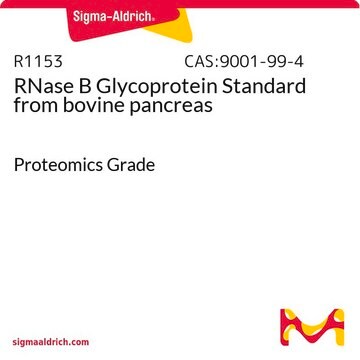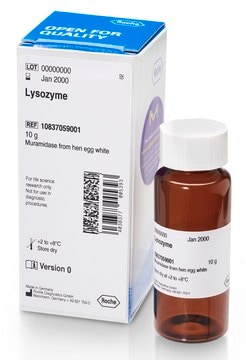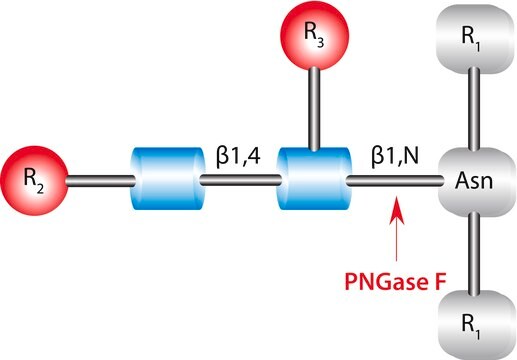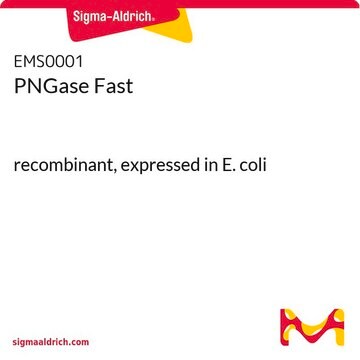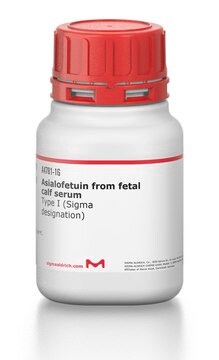R7884
Ribonuclease B from bovine pancreas
BioReagent, ≥50 Kunitz units/mg protein, ≥80% (SDS-PAGE)
Synonym(s):
RNase B
About This Item
Recommended Products
biological source
bovine pancreas
Quality Level
product line
BioReagent
assay
≥80% (SDS-PAGE)
form
powder
specific activity
≥50 Kunitz units/mg protein
concentration
≥60%
technique(s)
cell based assay: suitable
suitability
suitable for molecular biology
application(s)
cell analysis
foreign activity
protease ≤0.001 units/mg solid
storage temp.
−20°C
SMILES string
[nH]1cncc1CC(NC(=O)CCN)C(=O)O
InChI
1S/C9H14N4O3/c10-2-1-8(14)13-7(9(15)16)3-6-4-11-5-12-6/h4-5,7H,1-3,10H2,(H,11,12)(H,13,14)(H,15,16)
InChI key
CQOVPNPJLQNMDC-UHFFFAOYSA-N
Looking for similar products? Visit Product Comparison Guide
Related Categories
Application
Biochem/physiol Actions
Packaging
Preparation Note
inhibitor
signalword
Danger
hcodes
pcodes
Hazard Classifications
Resp. Sens. 1
Storage Class
11 - Combustible Solids
wgk_germany
WGK 3
flash_point_f
Not applicable
flash_point_c
Not applicable
ppe
Eyeshields, Gloves, type N95 (US)
Choose from one of the most recent versions:
Certificates of Analysis (COA)
Don't see the Right Version?
If you require a particular version, you can look up a specific certificate by the Lot or Batch number.
Already Own This Product?
Find documentation for the products that you have recently purchased in the Document Library.
Customers Also Viewed
Articles
PNGase Fast denaturing buffer and enzyme provide results similar to a conventional 20-hour protocol, reducing workflow time to about 1 hour.
Our team of scientists has experience in all areas of research including Life Science, Material Science, Chemical Synthesis, Chromatography, Analytical and many others.
Contact Technical Service